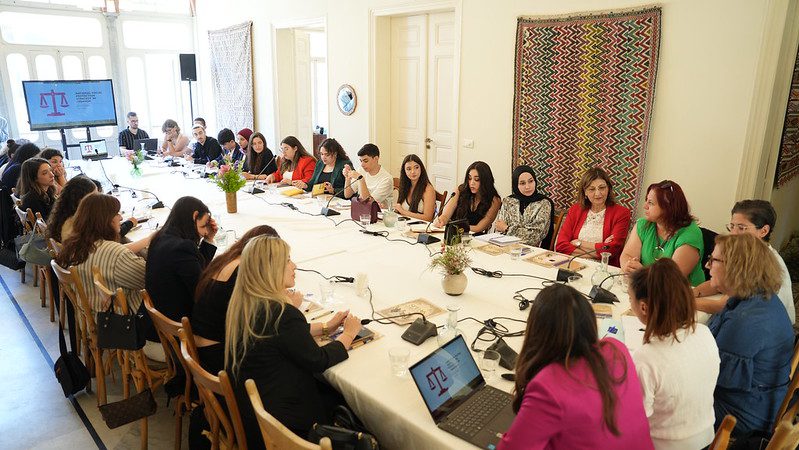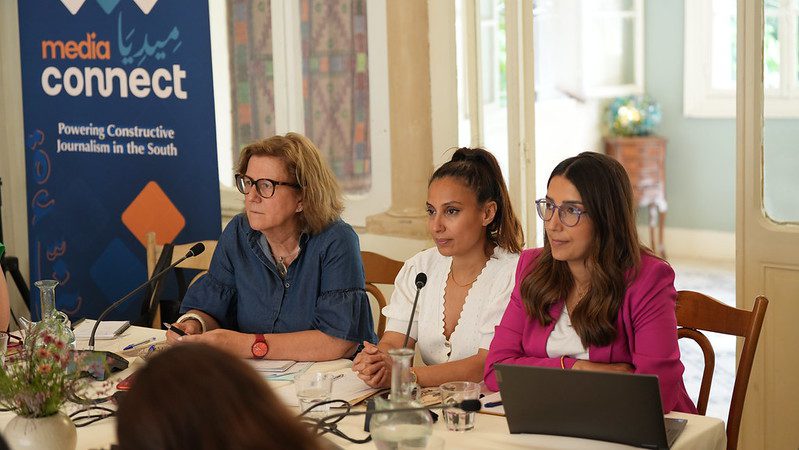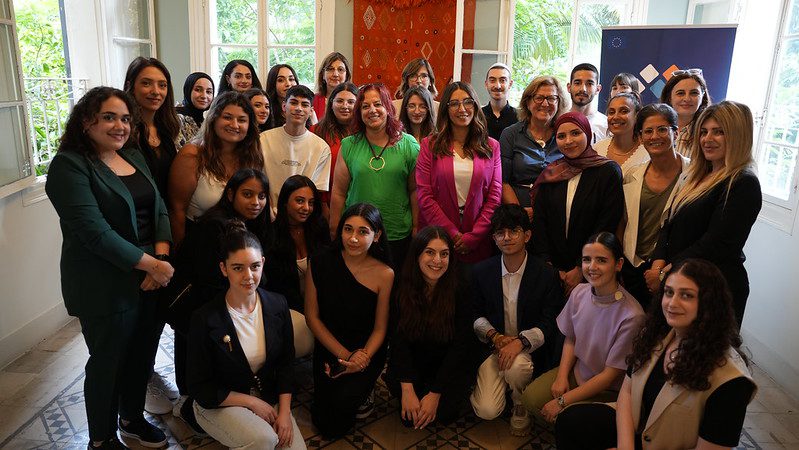Young Today, Poor Tomorrow? Social Protection at the Heart of the 1st Media Connect in Lebanon
As part of its new Media Connect initiative, the EU Neighbours South programme organised an event in Lebanon that brought together journalism students from three universities to discuss social protection in the context of the economic crisis in Lebanon. Supported by the Maharat Foundation, the event showcased the country’s new EU-backed social protection strategy, which provides benefits for vulnerable groups and private sector workers. The event is part of a wider initiative by EU Neighbours South to engage young journalists from the Mediterranean region. Similar events are planned in Morocco, Jordan and Libya.

Some twenty journalism students from three Lebanese universities, namely Notre Dame University, Antonine University and the Arab University, participated in the first EU Neighbours South ‘Media Connect’ event for Lebanon. The thought-provoking title of the meeting was “Young today, poor tomorrow?” – an attempt to draw attention to the urgency of the issue of social protection in Lebanon.
Organised with the support of the Maharat Foundation, the 1st Media Connect in Lebanon brought together young media and communication students, budding journalists, EU representatives and EU-funded projects around the theme of social protection. This challenging topic is crucial given the current situation in Lebanon and the lack of social services for the population. During this meeting, the young students were familiarised with the different aspects of social protection and Lebanon’s new social protection strategy, which was supported by the EU and adopted by the Lebanese government earlier this year.

New Strategy backed by the EU: Inclusive Social Protection
In her statement, the Director of Cooperation in the Delegation of the European Union, Alessandra Viezzer, emphasised the importance of adopting the national social security strategy. In view of the economic crisis, she hoped that the International Monetary Fund would be able to intervene to draw up a recovery plan. She also emphasised the need to take the necessary measures to restructure the banking system and revive the economy.
Mrs Viezzer also called on the Lebanese to pay their taxes to the government “because this is necessary to maintain state institutions”,” she said, urging young people to “go out and vote if they want to achieve real change”.
Citing a recent World Bank study on poverty in Lebanon, she noted that “one in three Lebanese live in poverty, while the middle class makes up 23% of the population, with Lebanon being a country where inequalities are becoming more and more pronounced”.
Sobhiya Najjar, a journalist and researcher who has been involved in drafting the national social protection strategy, gave an overview of the situation and the new social security measures that should be taken once the country emerges from the crisis. In fact, before the crisis, only civil servants benefited from good social protection plans, especially in terms of health and pension benefits. The new strategy would include the private sector and the most vulnerable groups, especially the disabled and migrant workers. It also includes several new components, including sickness, unemployment, old age, accident, maternity benefits for families, disability and survivors.
Another priority is an aid plan for the most vulnerable citizens, which was launched in the wake of the crisis in 2019 and is funded by the European Union. It is being implemented jointly with the World Food Programme and the Lebanese Ministry of Social Affairs and supports 75,000 of the most vulnerable Lebanese households with USD 20 per month per family member.

Youth Voices in Focus: Insights from Budding Journalists
Lebanese youth, living in a country that has been hit by an unprecedented economic crisis have matured in the face of adversity over the past five years. The questions they posed to the panellists, who spoke about poverty, citizenship, the role of the state and social protection, were worthy of seasoned journalists and reflected a genuine interest in the future of their country and how the social protection strategy affects their own lives.
The participants asked a number of questions about the control mechanisms in supporting the Lebanese administration, future aid, European projects implemented in Lebanon, the active fight against nepotism and corruption, and the presence of Syrian refugees and the support provided to them.
Riwa Haidar, a 21-year-old journalism student, states that “it is important that donors control the money paid to the Lebanese state”. Riwa, who would like to stay in Lebanon, is well aware that it is becoming increasingly difficult to live in a country that does not offer its citizens much. “If I stay, I want to be able to live in dignity. I don’t want to be forced to beg from any political party because I have to eat my fill or go to hospital for treatment,” she says.
Jana el Taboun, a first-semester journalism student, mentioned the problem of all the families in her neighbourhood who were plunged into poverty overnight by the devaluation of the Lebanese currency. Nevertheless, the young woman believes that “the social protection strategy adopted at the beginning of the year can be an opportunity for the Lebanese to be better anchored in their country”.
Ribal Abou Ali, a 20 years old journalism student says: “I love Lebanon and I want to stay here. This is why it is necessary for things to change, for me and my family in the future. A good social security policy should be part of these changes”.




























 Syria
Syria 



